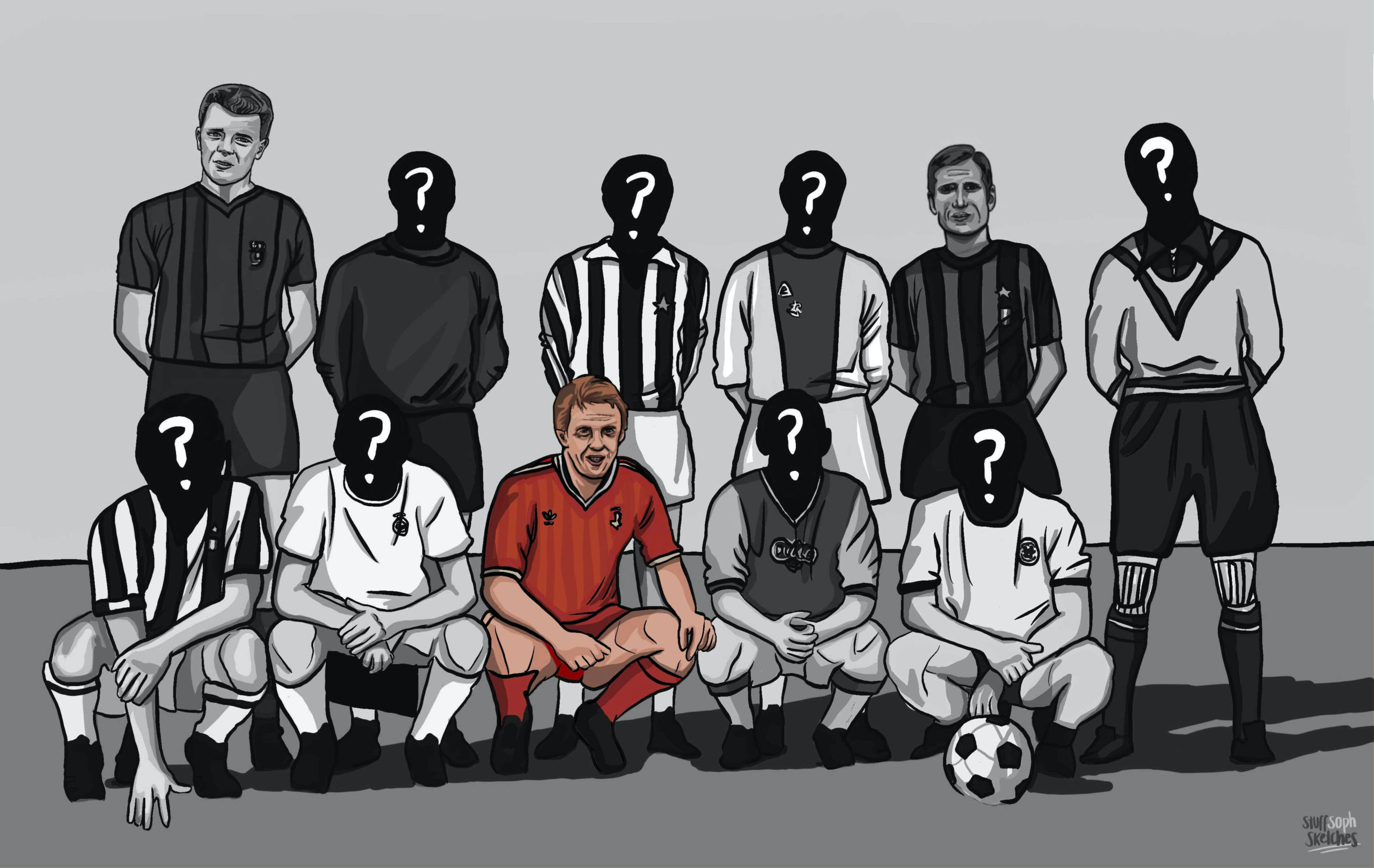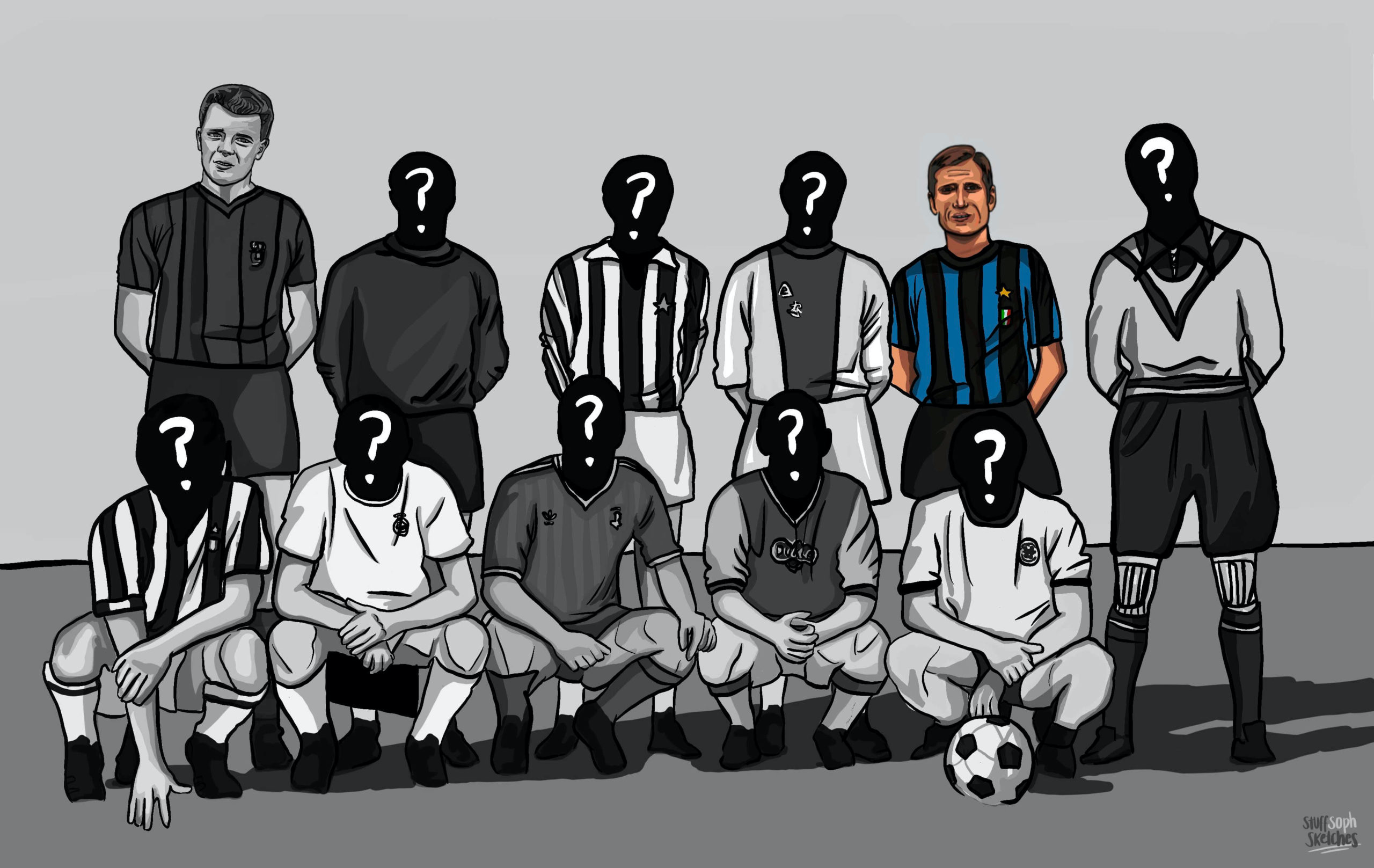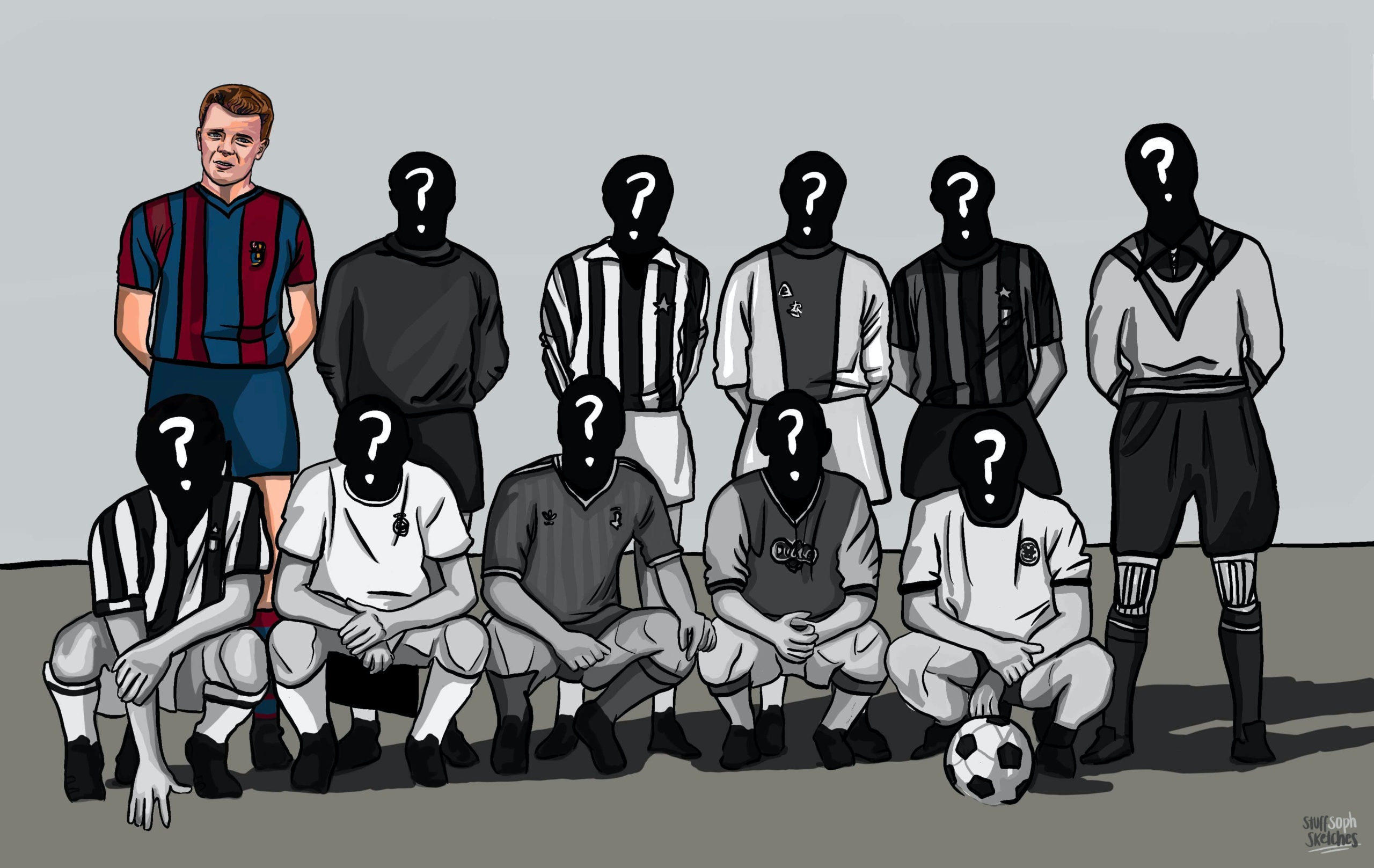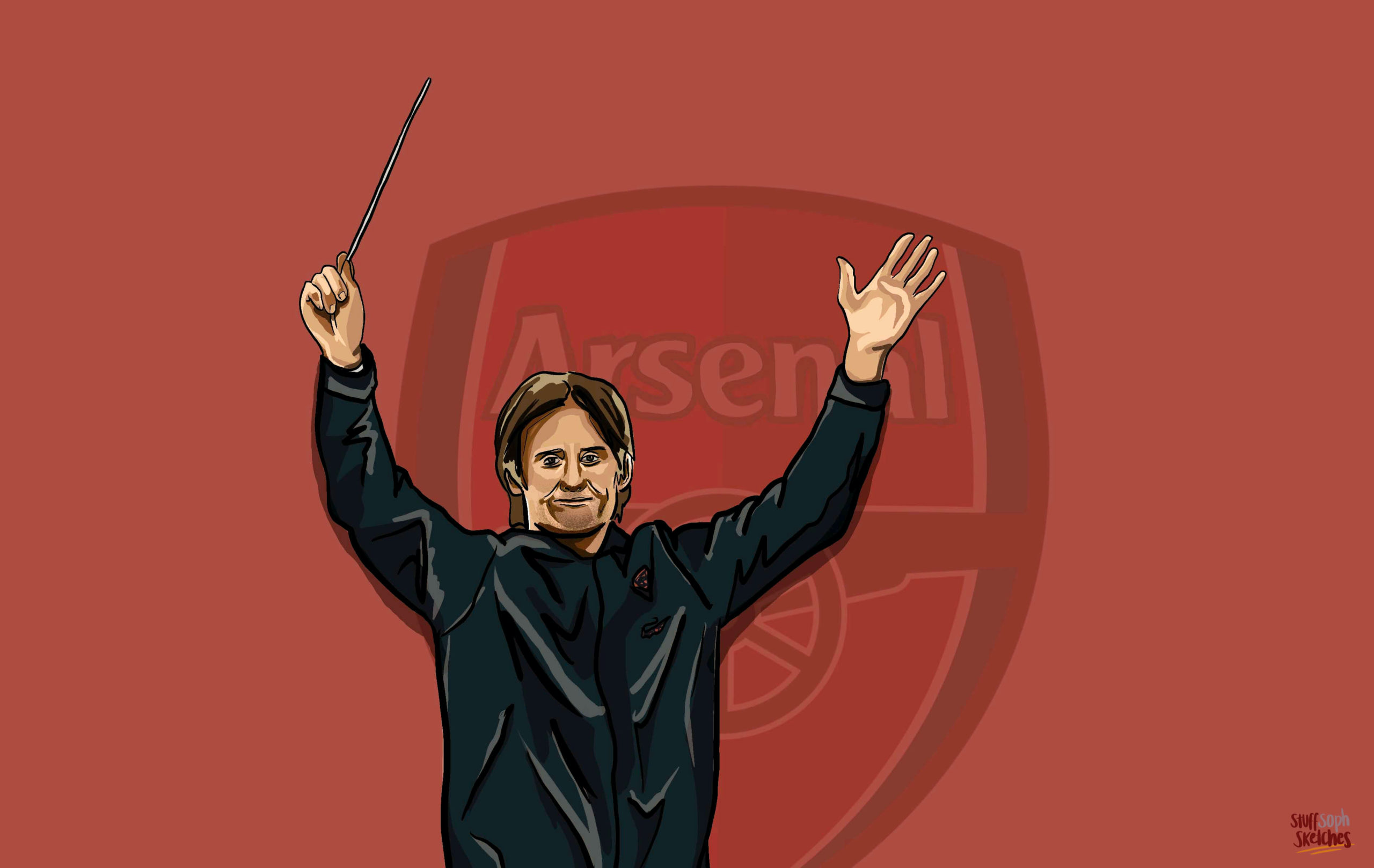Between 1992 and 1993 the English FA and England manager, Graham Taylor, allowed a documentary crew for Cutting Edge to follow the disastrous USA ’94 World Cup qualifying campaign. An Impossible Job (1994) chronicled Taylor’s last years as England manager, highlighting the difficulties he faced and, in part, created himself through team selection and ultimately the inability to qualify for the World Cup. Despite this being Taylor’s first failure as a manager, the documentary saw his reputation damaged forever – as was the reputation of Taylor’s right-hand man and assistant manager, Phil Neal.
Hilariously lampooned as a “Yes Man” by Bradley Walsh’s character in Mike Bassett-England Manager (2001), Neal’s appearance on screen in An Impossible Job amounted to little more than looking bemused by England’s performances and agreeing with whatever Taylor suggested. Sadly, the branding of Neal only as a “Yes Man” means we fail to remember him for what he truly is: Liverpool’s greatest ever right-back.
Kettering’s loss became Liverpool’s gain.
Neal began his career at Northampton Town and had already made 187 appearances for The Cobblers when Bob Paisley paid £66,000 to make the 23-year-old his first signing as Liverpool manager in October 1974. In the last game Paisley scouted before signing him, Neal’s characteristic utility role was tested to the limit when he played seventy minutes in goal for Northampton after an injury forced the goalkeeper to leave the field. Off the pitch, Neal had been considering an offer for a part-time contract with Kettering Town, who were managed by Ron Atkinson and were offering the same money that he was earning at Northampton but with the opportunity to earn a little more on the side. Having been scouted by other clubs but not getting an opportunity in a higher division, Neal was seriously considering the offer when Liverpool came calling. Kettering’s loss became Liverpool’s gain.
As was the practice at the time, Neal would begin his Liverpool career in the reserves and have to wait for his opportunity to play in the first team. Not yet playing with the main squad, and being new to the area, Neal found he had a lot of time to himself; luckily, so did recently retired Bill Shankley. Forming a well-timed friendship, the former great Liverpool manager could reassure Neal that he would make the grade once given the opportunity.
Unsurprisingly, Shankley was right and Neal’s debut came sooner than expected. On the morning of 16 November 1974, Neal was informed by Paisley’s assistant that he wouldn’t be playing for the reserves that day – he was to make his way to Goodison Park with the first team. On his arrival, Paisley greeted him with ‘Get ready to play son’. Despite having been signed as a long-term replacement and future right-back, Neal made his debut for Liverpool that day, playing against Everton in the Merseyside Derby, at left-back.
Although he played well and the match ended goalless, Neal did not keep his place in the starting eleven; for the next three games, he dropped back down to the reserves. However, on 14 December 1974, Neal was recalled to the first team and his name would not be missing from a Liverpool starting eleven until October 1983. Neal would go on to make 417 consecutive appearances, a record for the Merseyside giants during arguably the greatest period of their history.
Neal recalls that there were two occasions when he could have missed a fixture. The first was when his cheekbone was fractured on the Tuesday and he played on the Saturday, against specialist advice; the second occasion was when he broke a toe and for six weeks, due to the dressing, he had to wear a size 8 ½ boot on one foot and a size 7 on the other. After missing three games due to the injury picked up against Manchester United in September 1983, Neal returned to the Liverpool starting eleven against Luton Town, incidentally the first team he faced at the start of his record-breaking run of appearances in 1974. He went on to make another 127 consecutive appearances.
Best-friend to Neal during their time shared at Liverpool, Ray Clemence described him as a great reader of the game, an intelligent rather than gung-ho fullback, with an ability to surge forward and set things up that added another dimension to Liverpool’s play.
His attacking ability, as well as the number of goals he scored from defence, earned him the nickname “Zico” from the fans. Manchester United’s Ron Atkinson even suggested that his team’s relatively good record against Liverpool during this period was due to the fact that they shackled Neal at fullback. Clemence commended Neal’s tremendous awareness of every other player in the team, where they were supposed to be and what their job was.
Not only a creator and scorer of important goals, Neal is only one of two British footballers, and the only Englishman, to score in two separate European Cup (Champions League) finals. Neal was a consistent and accomplished defender, no better demonstrated than in the European Cup final of 1981 against Real Madrid. Neal’s job was to stop the dangerous Cunningham, with the intention of allowing Kennedy, Liverpool’s left-back, to attack down the opposite flank. The plan worked perfectly with Cunningham, marshalled by Neal, having little influence on the game and Kennedy getting forward to score the winner. In the 1978-79 title winning season, despite the fullbacks having the freedom to attack as wingbacks, long before the position was “invented”, Liverpool only conceded sixteen goals in a forty-two-game season.
In 1984, Neal succeeded Graeme Souness as Liverpool captain and believed that he was being groomed to become Liverpool’s next manager when Joe Fagan retired, which he thought would be at the end of the 1985-86 season. However, tragic circumstances led to a chain reaction that resulted in Neal leaving the club the following year after one of the darkest days in European football history. At the 1985 European Cup final in Heysel, Liverpool had the opportunity to emulate the great Real Madrid team of the 50s and win their fifth European Cup, whilst Juventus were aiming for their first European Cup success. Yet, football mattered little that night as British hooliganism reared its ugly head and thirty-nine people were killed whilst hundreds were injured. Moments before kick-off, Juventus fans were under attack and being charged at by British hooligans – I am refraining from calling them supporters as I do not believe that hooligans are football supporters at all. Fans fled to a perimeter wall, and in the ensuing panic, some tripped and were suffocated, trampled on, or died crushed against the wall. The wall couldn’t cope with the pressure and collapsed, allowing some the opportunity to escape. As captain of Liverpool, Neal initially refused to return to the pitch and play the game, but under pressure from UEFA and concerned that if the match wasn’t played there would be more crowd trouble, Liverpool and Juventus were forced to play on. Juventus won their first European Cup 1-0 almost apologetically. No one really cared about the score as the tragic victims were still being moved away from the pitch at kick-off. Those who witnessed the catastrophe or were forced to take part in the ensuing debacle remain haunted by it.
Joe Fagan had announced his retirement before the game, and Neal believed he would be announced as manager shortly after. Instead, within twenty-four hours of the Heysel disaster, Kenny Dalglish had been announced as player-manager and Neal was left wondering what his role at the club was going to be. Whilst Neal started the following season (1985-86) as captain, it was obvious that Dalglish was looking to the future and, after he was dropped in favour of Steve Nicol, Neal knew his time at the club was coming to an end. In December 1985, Neal accepted a job offer to become player-manager at Bolton Wanderers. Despite being in his new role when Liverpool won the title, Neal still won his eighth league medal seeing that he had played enough league games before his departure.
After eleven years of service, Phil Neal is still Liverpool’s most decorated player. He won twenty-three trophies in his career – a figure only surpassed domestically by Ryan Giggs and Paul Scholes (who both played for closer to twenty years at Manchester United). Neal scored fifty-nine goals in 650 appearances and won eight league titles, four European Cups, four consecutive League Cups, one UEFA Cup, five Charity Shields (one shared) and one UEFA Super Cup. He never missed a day’s training, always had a smile on his face and, as Karl Coppack notes, ‘For almost eleven years, Phil Neal was synonymous with the greatest period in Liverpool history and he played almost every single game’.



